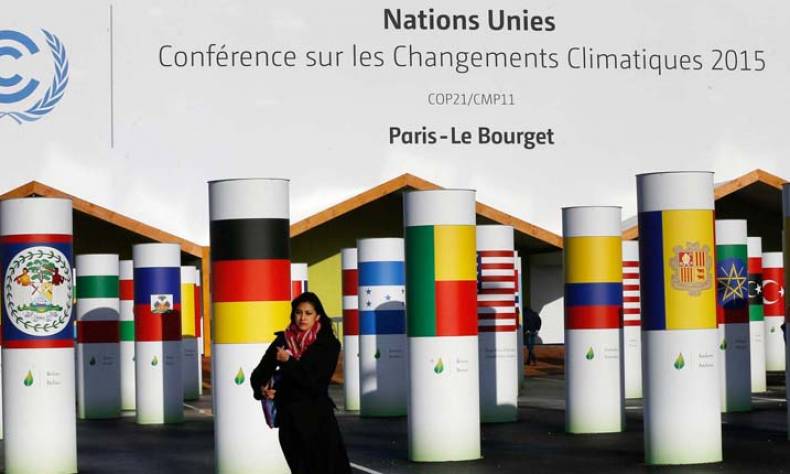
Climate Change: The Greatest Challenge for Our Generation
Global warming is an undeniable reality. Its adverse effects threaten both humanity and nature. Indeed, mounting evidence makes clear that climate change may very well be the greatest challenge that our generation will have to face. As a result, the 21st Conference of the Parties to the United Nations Framework Convention on Climate Change (also known as the COP21) is one of the most significant events of 2015, not only for the 195 nations who have sent their teams to negotiate at the Paris summit, but also for ordinary citizens.
The agreements reached at the summit will have a long-term impact on the lives of people throughout the globe. As The Guardian notes “the decisions […] will affect everything from which power plants provide you energy to what food you eat and how likely your home is to flood or be hit by extreme weather in the future.”
Over the next two weeks, countries will endeavor to work out a deal for beyond 2020 ( the year the Kyoto Protocol expires) in order to maintain global warming to a 2c increase. In particular, countries will need to agree on commitments to limit their greenhouse emissions as well as usage of polluting fossil fuels. Needless to say, the outcome of the convention will also be greatly influenced by the endeavors of the world’s biggest carbon dioxide emitter: China.
On the one hand, China does definitely appear to be taking steps in the right direction. This June, China revealed an ambitious plan that would see the 2030 rate of its emissions per unit of GDP drop by 60-65% of that from 2005. Following in the footsteps of the EU, the country also intends to establish its own emission trading system.
On another positive note, China has also made great efforts to gradually wean itself off its dependence on fossil fuels, instead shifting towards renewable and nuclear energy. In fact, China Daily has claimed that by spending 90 billion USD in the development of renewable energy, China has invested the more than any other nation in this area. Hence, Maria van der Hoevan, the head of a think-tank called the International Energy Agency, told the BBC that “People think about China in a way more representative of previous decades. They are now the largest wind power market in the world. They have increased their power generation from renewables from really nothing 10 years – and now its 25%.”
However, at the same time, some argue that China could be more committed to this cause. Despite being the world’s second largest economy and emitting almost double the co2 emissions that the USA does, China argues that as it is still a developing country, developed countries must take up a greater responsibility to counter climate change. This was underlined when Zhang Haibin, director of Center for International Organizations at Peking University, told Xinhua that “”China can be seen as an active and constructive participant, but not a leader, on climate change issue.”
Similarly, at the launch of the COP21, President Xi also emphasized that “It is imperative to respect differences among countries, especially developing ones, in domestic policies, capacity building and economic structure [ and that ] the legitimate needs of developing countries to reduce poverty and improve their peoples’ living standards should not be denied when the issue of climate change is being addressed.”
To what extent developing countries should contribute towards the fight against climate change will certainly be one of the biggest questions of the COP21. Whatever the outcome of this situation, we may at least find some optimism in the fact that wheras industrialized countries presently are under pressure to spend much money and time on revising their existing infrastructures, cities, buildings, businesses etc. to be more eco-friendly and energy-efficient, today’s world now has the technology and know-how to assist these developing countries to grown in a green way. Our goals to save the environment may yet be in reach.
 Facebook
Facebook
 Twitter
Twitter
 Linkedin
Linkedin
 Google +
Google +










Hope states can leave behind their own interests, and actually do something to help all of mankind.